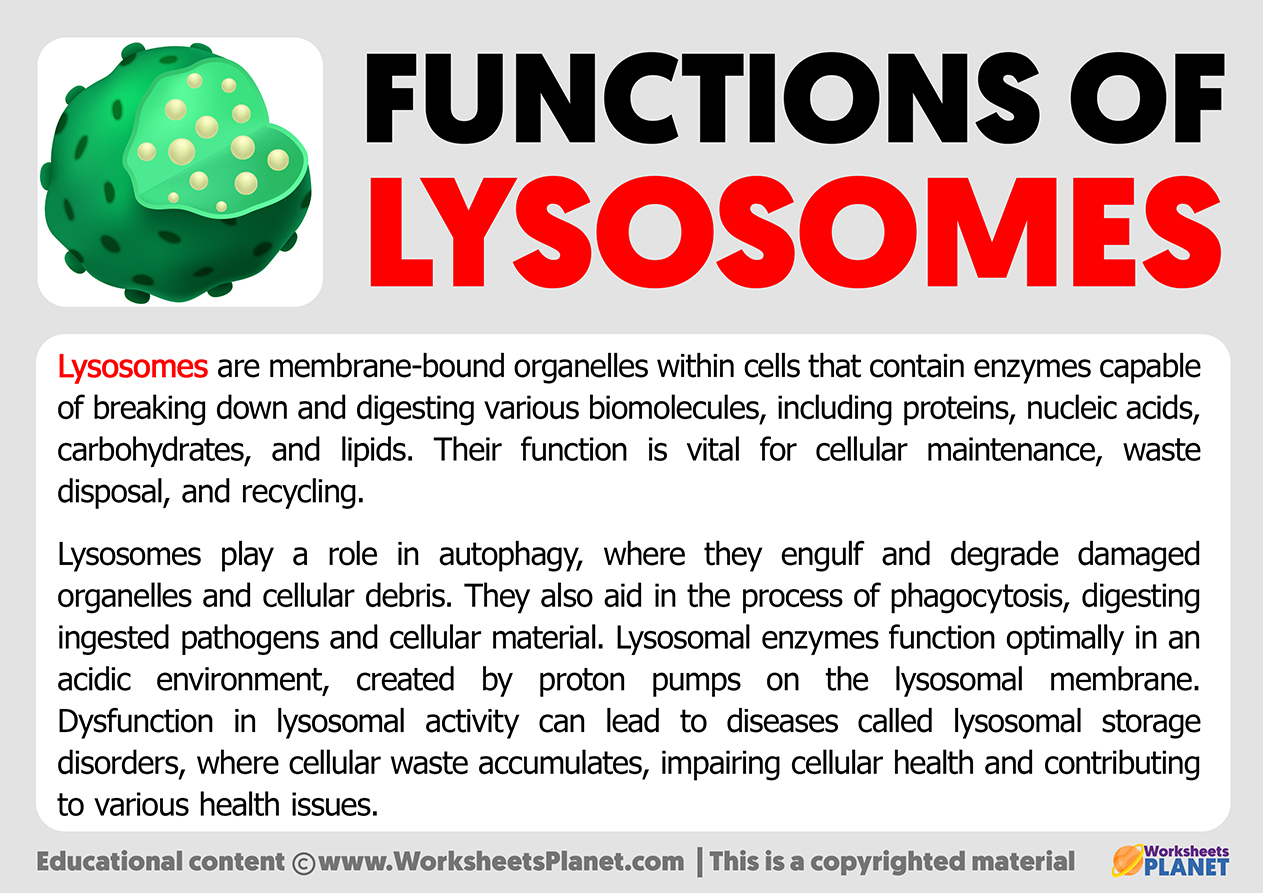Lysosomes are membrane-bound organelles within cells that contain enzymes capable of breaking down and digesting various biomolecules, including proteins, nucleic acids, carbohydrates, and lipids.

Their function is vital for cellular maintenance, waste disposal, and recycling.
Lysosomes play a role in autophagy, where they engulf and degrade damaged organelles and cellular debris. They also aid in the process of phagocytosis, digesting ingested pathogens and cellular material. Lysosomal enzymes function optimally in an acidic environment, created by proton pumps on the lysosomal membrane.
Dysfunction in lysosomal activity can lead to diseases called lysosomal storage disorders, where cellular waste accumulates, impairing cellular health and contributing to various health issues.

